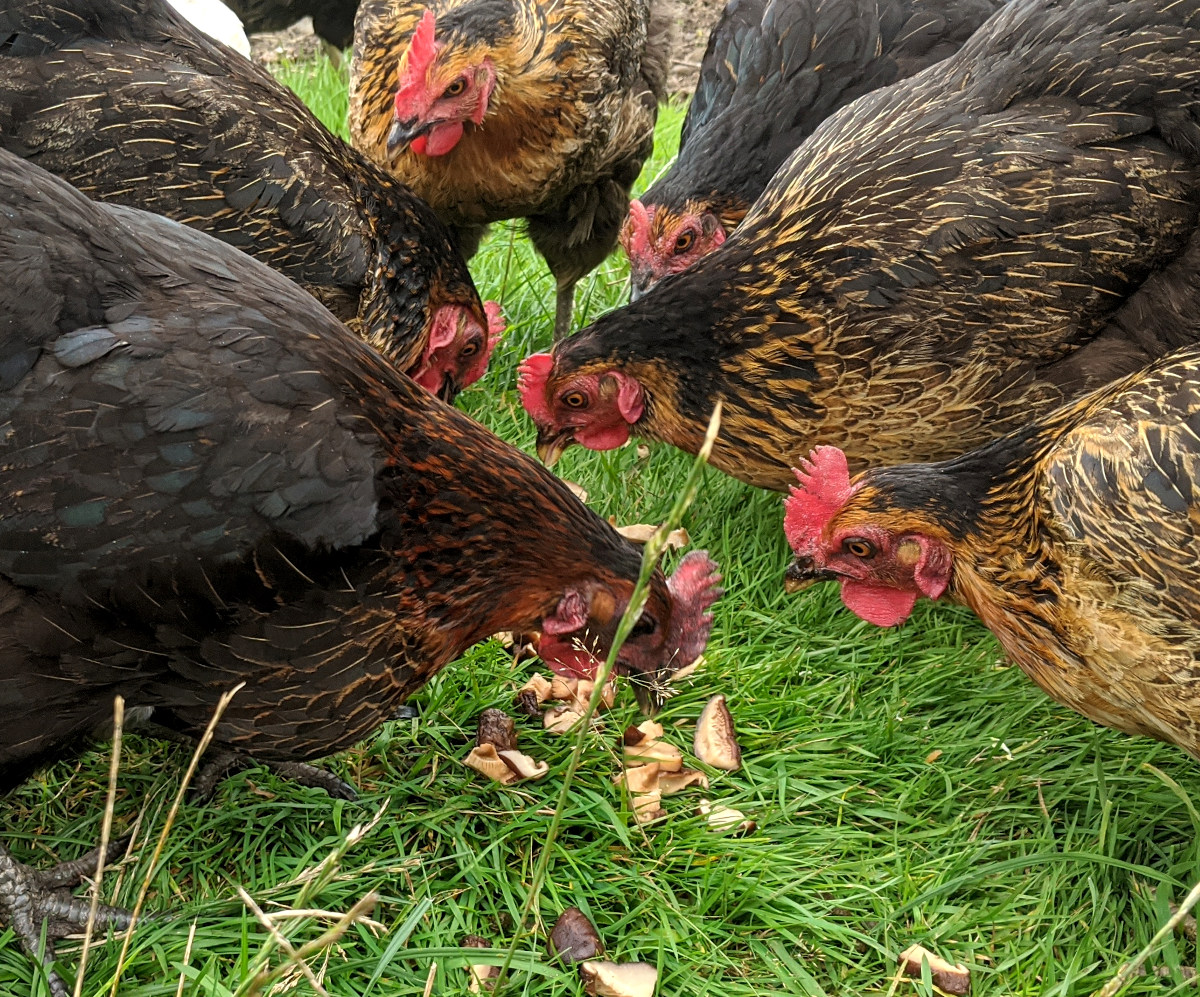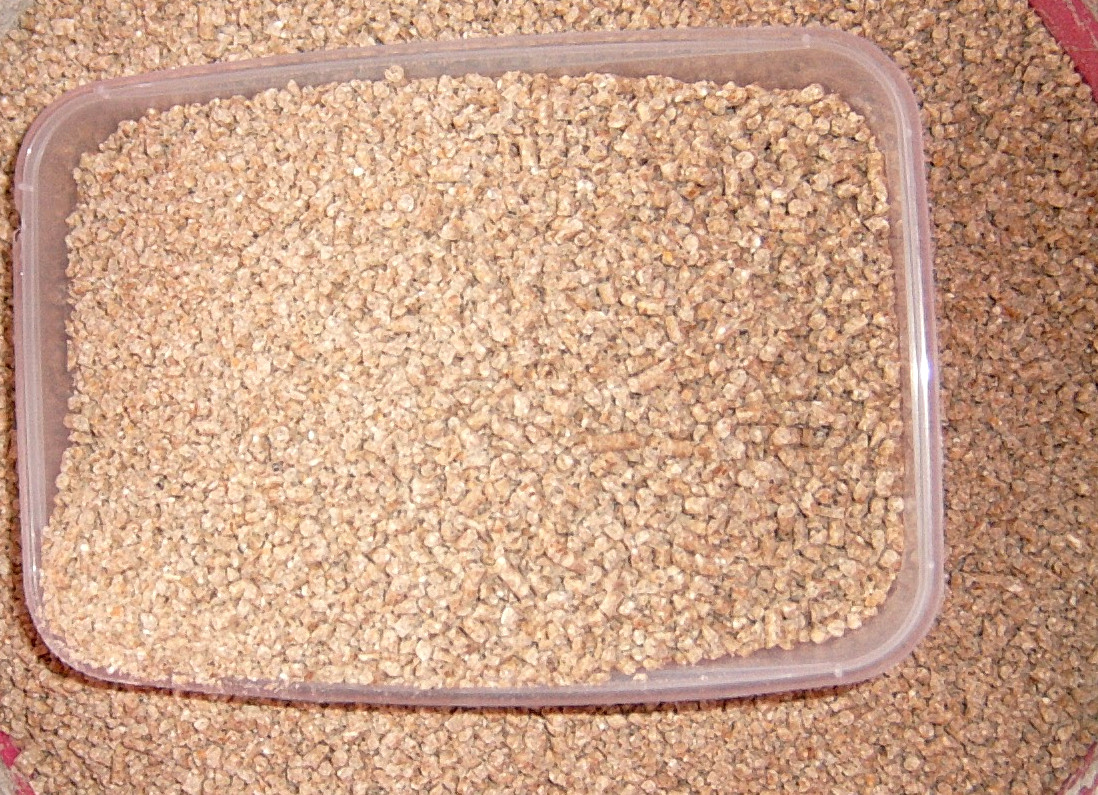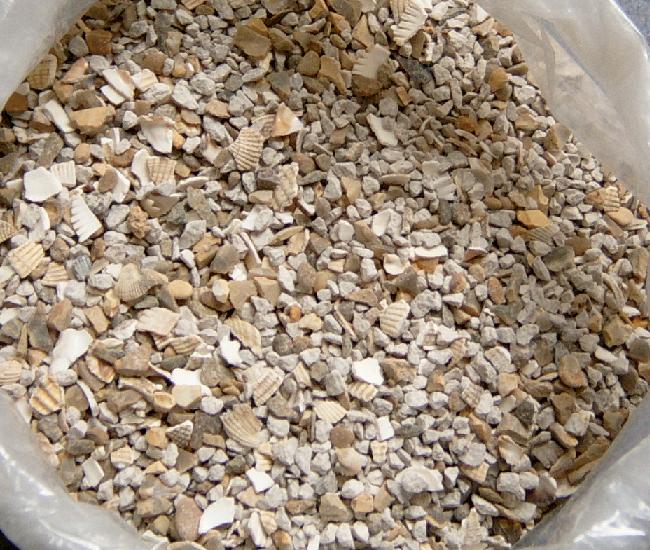Different types of chicken feeds explained.

Choosing the right type of feed is crucial to the health and well-being of your birds. With so many options available in the market, it can be challenging to determine which one is best suited for your flock.
Table of Contents
Remember to provide your birds with a balanced diet first and then including a mixture of different types of feeds, grit, scraps and treats.
Does it matter what you feed chickens?
Yes, it does matter what you feed chickens. The nutritional value of their feed directly affects their health, egg production, and overall well-being. Chickens require a balanced diet that provides them with the right amount of protein, carbohydrates, fats, vitamins, and minerals.
A complete commercial feed for chickens usually contains all the necessary nutrients in the right proportions.
If you want to provide your chickens with a more natural diet, you can supplement their feed with seeds, grains, fruits, vegetables, and insects. It's essential to ensure that any supplementary feed you give them is safe and does not contain harmful substances.
Below: The egg flock getting vegetable scraps while out on pasture.
Feeding chickens with a balanced diet also helps prevent diseases and illnesses, which can result from nutrient deficiencies or excesses.
Feeding them the right food can affect the taste and quality of the eggs they produce and these eggs are more likely to have better fertility and hatch rates.
What are the most common feeds fed to chickens?
Here is a table of some common chicken feeds and their ingredients:
| Feed Type | When to feed | Protein content | Sample Ingredients |
|---|---|---|---|
| Starter Feed | Day 1 to week 6. | 22 to 24% protein | Corn, soybean, canola or sunflower meal, wheat, sorghum, fish meal, vitamins and minerals. Some have added medications. |
| Grower Feed | Week 6 to week 18. | 18 to 20% protein | Corn, soybean, canola or sunflower meal, wheat, vitamins and minerals. May contain a mix of grains. |
| Layer Feed | Week 18 onwards. | 16 to 18% protein | Corn, soybean, canola or sunflower meal, wheat, calcium carbonate, vitamins and minerals. |
| Broiler Feed | day 1 to finishing. | 20 to 24% protein | Corn, soybean, canola or sunflower meal, wheat, vitamins and minerals, sometimes supplemented with antibiotics or digestive enzymes. |
| Pasture | Day 1 onwards if you can. | 16 to 25% depending on season, conditions and grass variety. | Chickens on pasture have access to greens, insects and grit as well as fresh air, exercise, sunshine and the freedom to indulge in natural behaviours. Pasture is an excellent protein and calcium source. |
| Scratch Feed | From week 6 if soaked in water first. | 12% protein | Whole or cracked grains such as corn, wheat, oats or barley, sometimes mixed with seeds and dried fruits or vegetables. |
| Treats | From day 1 but never more than 5% of the diet. | Variable | A mix or selection of seeds, grains, vegetables, insects, fruits or peck blocks designed to enrich the environment. |
| Grit and shell | Grit from day 1 and shell from week 16. | none | Grit is crushed flint or granite an can be a variety of sizes and shell is pieces of oyster shell. |
| Scraps | From 12 weeks but never more than 5% of the diet. | Variable | The waste from human kitchens and tables, often consisting of vegetable and fruit peelings and seeds, table scraps and leftovers and food that is no longer fit for human consumption like stale bread. |
Some feeds also contain bentonite clay, ash and vegetable oils. Chicken feeds are available as pellets, crumb or mash.
It's important to note that different manufacturers may use slightly different ingredients and formulations, so it's always a good idea to read the label and choose a high-quality feed that meets your chickens' specific nutritional needs.
Additionally, it's important to provide your chickens with fresh water and access to pasture or other sources of greens and insects to supplement their diet.
What type of feed is best for chickens?
The best feed for chickens depends on their age, breed, and purpose, such as egg-laying, meat production, or both.
However, in general, a good quality commercial feed for chickens usually contains all the necessary nutrients in the right proportions.
The advantage of buyer a commercial feed in the form of pellets or mash is that is has been formulated to a recipe known to bring results and manufactured to a standard.
Commercial animal feed companies spend millions of dollars every year studying their feeds and how to improve them.
Starter feed: for baby chicks from 0 to 8 weeks old, it contains a high level of protein and essential nutrients for growth.
Below: Chick crumb is the ideal starter feed.

Grower feed: for young chickens from 8 to 20 weeks old, it contains a lower level of protein and more fibre to support the development of muscles and bones.
Layer feed: for hens that are laying eggs, it contains a balanced level of protein, vitamins, and minerals to support egg production and overall health.
Broiler feed: for meat chickens, it contains a high level of protein to support rapid growth and muscle development.
Chicken feed should be age appropriate and changed gradually as the birds grow.
In addition to commercial feed, you can supplement your chickens' diet with grains, fruits, vegetables, and insects, as long as they are safe and do not contain harmful substances.
Below: Grit is necessary for all chickens.

It's important to choose a reputable brand of feed and to store it in a cool, dry place to maintain its freshness and nutritional value. Always provide your chickens with clean water and change their feed regularly to prevent spoilage and contamination.
